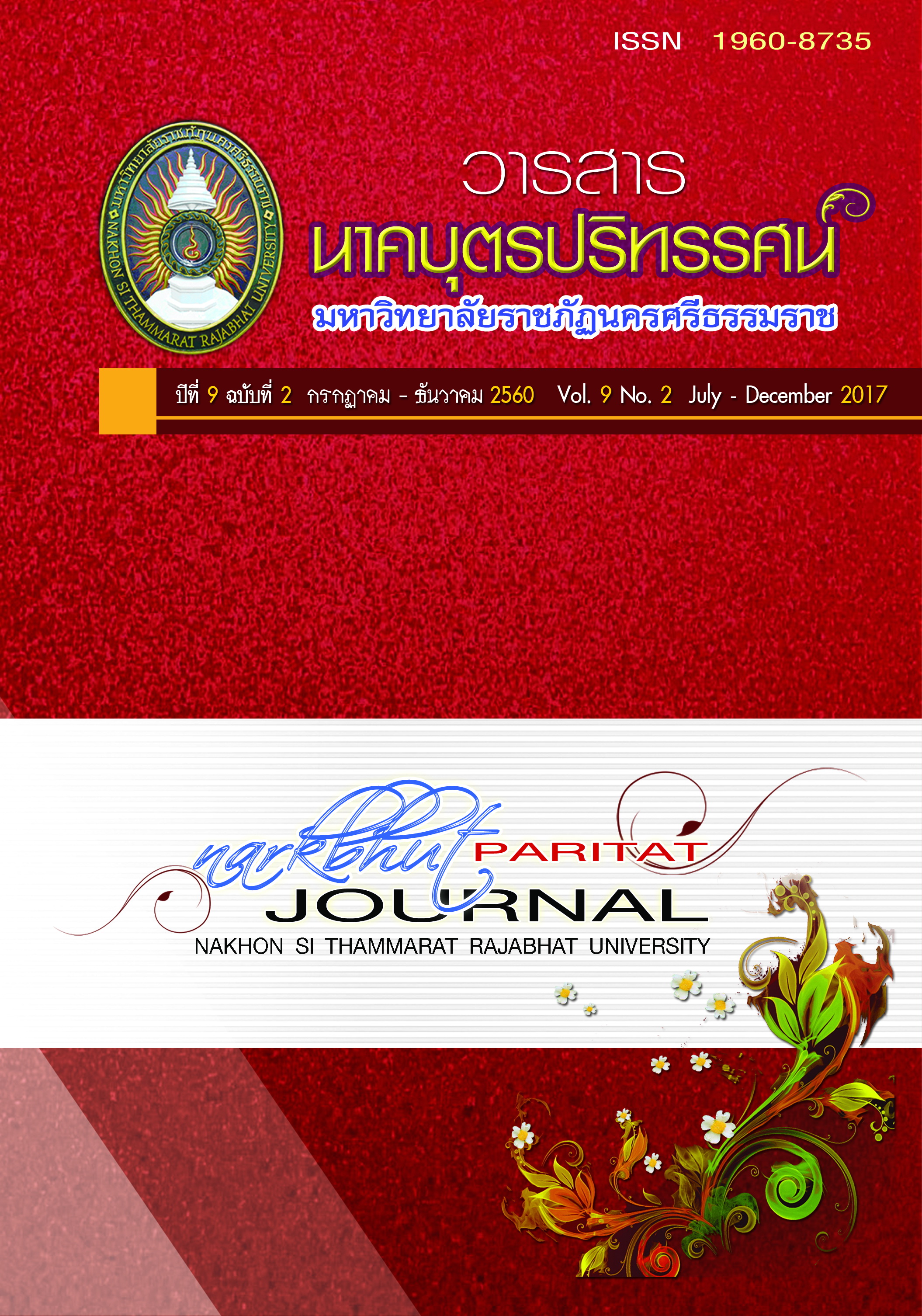ทุนทางสังคม Social Capital
Main Article Content
Abstract
Social Capital is defined as components that made up human daily lives such as social images, relationships, and communication. Creating social capital in communities started with investments in interpersonal relationships such as neighborhood associations and group identification. Social investments provide social rewards which benefits members of the community including friendship, altruism, and empathy.
Derived from the theory of social investments as a result of socioeconomic collapses, a solution proposed for Thailand is the combination of sympathy, empathy, altruism, community, and local knowledge. Local cultures, beliefs, and community’s capabilities deem the finest treasures of Thai society is what weaved Thai people together. However, various dimensions of social values affect the cultural norms which is the pillar that encompassed Thai society. Social capital is the value descended from Thai ancestors as humans passed on knowledge, wisdom, skills, morality, discipline, and responsibility. Work culture creates social connections and motivates altruism in many forms such as compassion, self-worth, integrity, and responsibility to local traditions and local knowledge. Local knowledge and traditions can be seen through the four fundamental factors of human needs. Human capabilities, environments, and management of public services comprised of various cognitive theories; however, the cognitive implications related to the results can be seen in human networking and process of social acceptance. Mutual agreement between communities is significant to stimulate self-study as well as study of social behaviors and interpersonal relationships that encourages trusts and higher social capital.
Social capital belongs to all members of the community; the more is needed, the more it affects peace and serenity. Members of the community connected through trust, empathy, and altruism activities that propagates local knowledge and social capital. Nature of altruism comprised of beliefs, ideas, and inventions in theory and practicality that enables humans to coexist. Local knowledge and traditional values of Thai society together can be considered a social capital that is a torch passed for many generations.
Article Details
References
การท่องเที่ยวแห่งประเทศไทย. (2557). สืบค้นเมื่อ 22 พฤษภาคม 2557. เข้าถึงได้จาก http://thai.tourismth
ailand.org/สถานที่ท่องเที่ยวและกิจกรรม/กิจกรรมและงานประเพณี/วิ่งแหวกทะเลสู่เกาะพิทักษ์.
บุญทัน ดอกไธสง, (2551). การจัดการทุนมนุษย์. กรุงเทพมหานคร: พิมพ์ตะวัน.
สุโขทัยธรรมาธิราช, มหาวิทยาลัย. (2554). เอกสารประกอบการสอนชุดวิชาการบริหารจัดการชุมชนการศึกษา.
หน่วยที่ 8-15. นนทบุรี: คณะกรรมการผู้ผลิตชุดวิชาการบริหารจัดการชุมชมหาวิทยาลัยสุโขทัยธรรมาธิราช.
สุวรรณี คำมั่น และคณะ. (2551). ทุนทางสังคมกับการพัฒนาทุนมนุษย์. สำนักงานคณะกรรมการพัฒนาการ
เศรษฐกิจและสังคมแห่งชาติร่วมจัดโดยมูลนิธิชัยพัฒนาสำนักงานคณะกรรมการพัฒนาการเศรษฐกิจ
และสังคมแห่งชาติและมูลนิธิสถาบันวิจัยเพื่อการพัฒนาประเทศไทยวันที่ 29-30 พฤศจิกายน 2551 ณ โรงแรมแอมบาสซาเดอร์ ซิตี้ จอมเทียน ชลบุรี.
สถาบันพระปกเกล้า. (2554). การศึกษาทุนทางสังคมเพื่อการพัฒนาชุมชนอย่างยั่งยืน. กรุงเทพมหานคร: ส เจริญ การพิมพ์.
สุวรรณี คำมั่น และคณะ. (2551). “สู่การเติบโตอย่างมีคุณภาพและยั่งยืน”. การสัมมนาวิชาการประจำปี 2551
จัดโดย มูลนิธิชัยพัฒนา สำนักงานคณะกรรมการพัฒนาการเศรษฐกิจและสังคมแห่งชาติ และมูลนิธิสถาบันการวิจัยเพื่อการพัฒนาประเทศไทยวันที่ 29-30 พฤศจิกายน 2551 ณ โรงแรมแอมบาสซาเดอร์ ซิตี้ จอมเทียน ชลบุรี.
นุทิศ เอี่ยมใส. (2555). ทุนทางศิลปวัฒนธรรมประเพณีกับการพัฒนาความเข้มแข็งของชุมชนจังหวัดเพชรบูรณ์.
(รายงานการวิจัย). มหาวิทยาลัยราชภัฏเพชรบูรณ์.
ชลดา บุญอยู่. (2556). ทุนทางสังคมกับการจัดการการท่องเที่ยวเชิงอนุรักษ์ กรณีศึกษา บ้านเกาะพิทักษ์
ตำบลบางนํ้าจืด อำเภอหลังสวน จังหวัดชุมพร. (วิทยานิพนธ์ปริญญามหาบัณฑิต), สาขาวิชาการจัดการ
ภาครัฐและภาคเอกชนบัณฑิตวิทยาลัย. มหาวิทยาลัยศิลปากร.
อาทิตย์ บุดดาดวง. (2554). ความสามารถในการนำทุนทางสังคมออกมาใช้ของชุมชนบ้านบางไพรอำเภอบาง
คนที จังหวัดสมุทรสงคราม. (วิทยานิพนธ์ปริญญามหาบัณฑิต), สาขาวิชาการบริหารการพัฒนาสังคม.
สถาบันบัณฑิตพัฒนบริหารศาสตร์.
ทินกฤต นุตวงษ์. (2554). มาตรการทางกฎหมายในการส่งเสริมการจัดการทรัพยากรป่าไม้โดย: กรณีศึกษา
ชุมชนบ้านทุ่งยาวกับชุมชนบ้านหนองไซ. (วิทยานิพนธ์ปริญญามหาบัณฑิต), สาขาวิชานิติศาสตร. มหาวิทยาลัยเชียงใหม่.
N.Kwon. (2008). A mixed-methods Investigation of the Relationship Between CriticalThinking
and Library Anxiety Among Undergraduate Students in their Information Search Process. College and Research Libraries, Vol.69.

